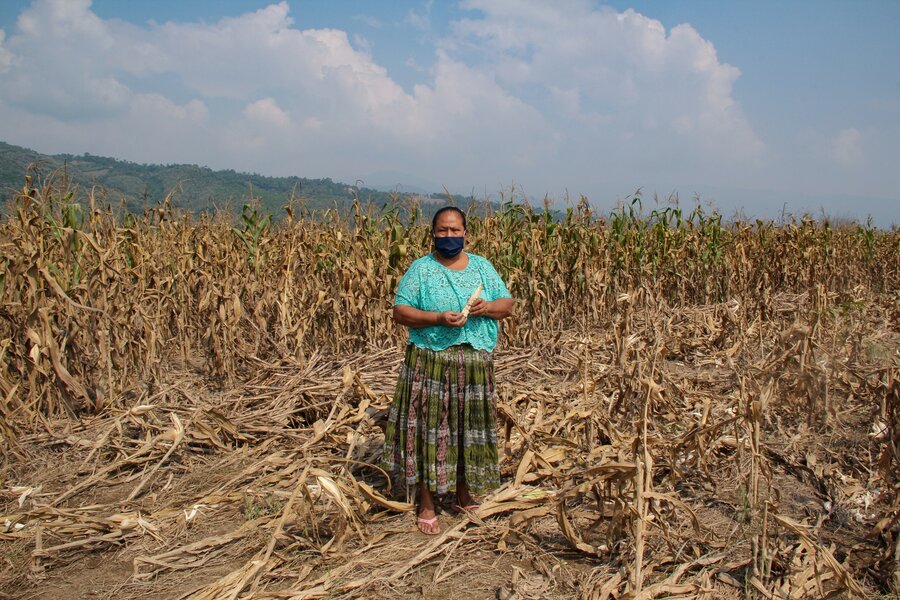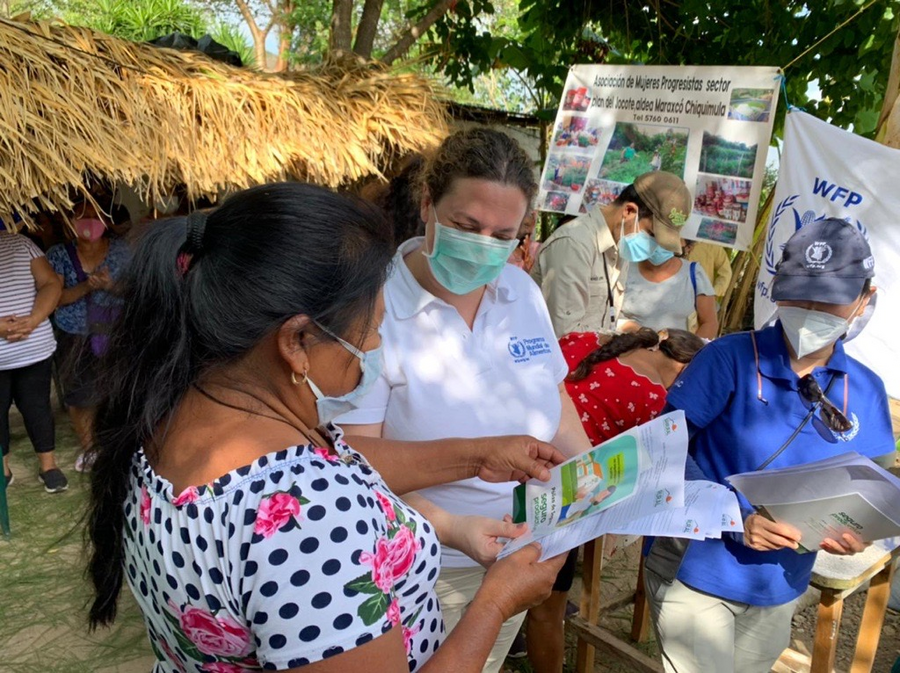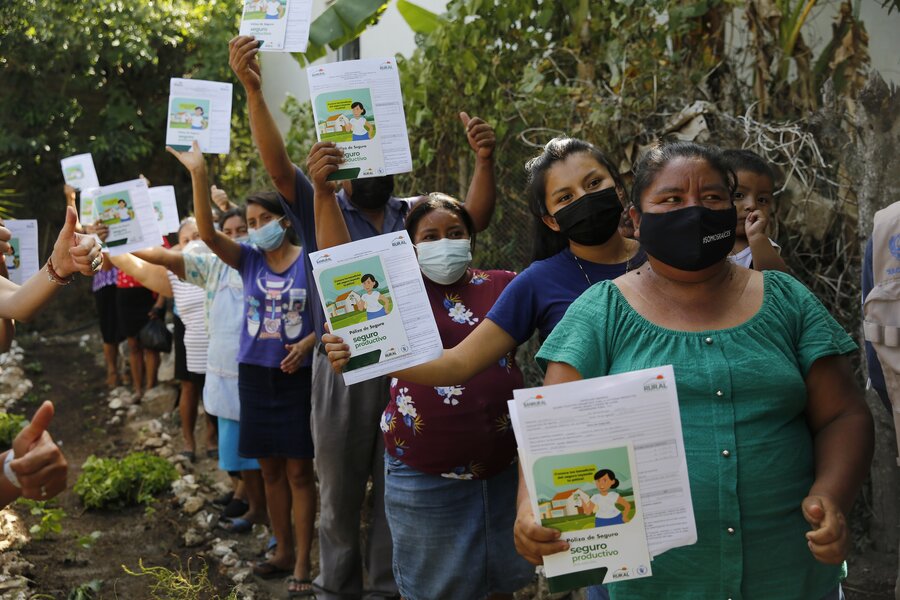Corazón De Maíz: Indigenous Women in Guatemala Are Protected From Drought, Heavy Rains and Hunger

For Farmers Day, we’re taking a look at a new pilot program run by the United Nations World Food Programme (WFP) in Guatemala, in partnership with Aseguradora Rural, that provides insurance coverage for women farmers’ cooperatives.
“After the heavy rains wiped out all our crops, we only had enough to survive for a few days,” says Herlinda Caal, a small-scale farmer from a Q’uqechi’ community. Q’eqechi’s are one of the Mayan Indigenous peoples living in Alta Verapaz, Guatemala.

The U.N. World Food Programme provides advice to small-scale farmers from a cooperative taking part in a climate insurance pilot project.
Across Latin America and the Caribbean, millions of people are vulnerable to frequent and extreme climate-related disasters. Most recently, the twin Hurricanes Eta and Iota struck Guatemala and caused landslides and floods that claimed lives, destroyed property and crops, and displaced thousands of people.

Women from the cooperative have more security through climate insurance.
For Indigenous women, the challenge to recover from these climate shocks is made even greater by gender inequality as they face:
- unequal access to land
- a lack of economic and social resources
- and low representation in government decision-making forums
An innovate insurance program in Alta Verapaz, run by the U.N. World Food Programme in partnership with the insurance company Aseguradora Rural, enables farmers and entrepreneurs to become more resilient to climate crises and hunger.

Herlinda is one of 12 women in her cooperative.
Herlinda is one of 12 women in her cooperative called “Corazón de Maíz,” or “Corn Heart.” The cooperative is comprised of all indigenous women who work to produce corn as well as raise poultry and pigs. The insurance program protects the women against business interruptions with guaranteed payouts up to $309 should drought or rains harm their livelihoods.
Financial risk-management tools like this insurance program level the playing field and allow people without access to traditional financial services to put food on the table for their families when their incomes fall short.
“This insurance is a great benefit,” says Herlinda. “This way we can move forward and have something for our children to eat.”
This is the first year of the pilot project, during which the U.N. World Food Programme will cover the insurance premium for participating cooperatives. Next year and onwards, the premiums will be paid by cooperative members.
This story originally appeared on WFP’s Stories on August 9, 2021 and was written by Teresa Tolo.




